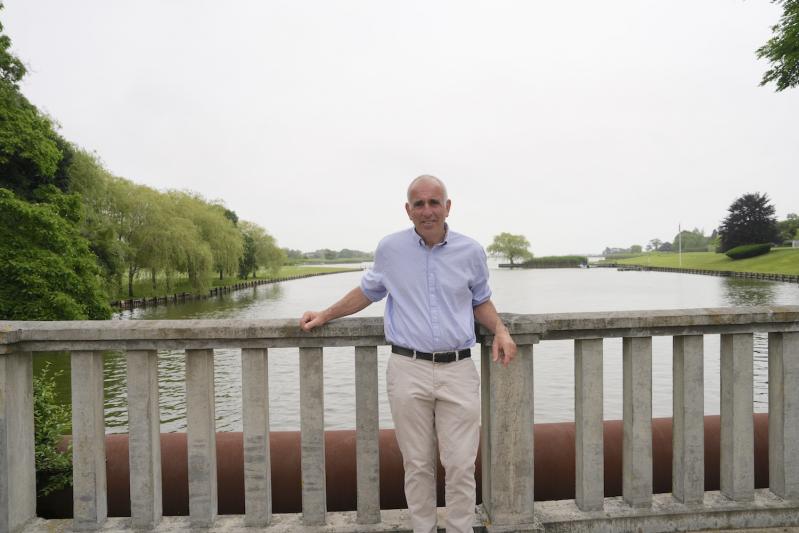The Mecox Bay data point appears as an ominous red dot on the Surfrider Foundation’s Blue Water Task Force monitoring website: For three weeks running, as recently as Monday of this week, what is at present a landlocked body of water has been turning up high levels of enterococcus bacteria — a pathogen associated with human waste.
It caused a stir as the basis for a June 12 headline in The New York Post: “Stunning Hamptons beach ranked as one of the worst for fecal matter in nation.”
But the Mecox Bay Conservancy, a new nonprofit group with former Southampton Town Supervisor Jay Schneiderman at the helm, is poised to do something about it.
“A lot of people have been responding to me saying they are concerned about the water quality in Mecox Bay and asking if it’s safe to go swimming,” said Mr. Schneiderman, who finished up a 24-year career in a number of elected offices in December. “We want to clean up the water and make it one of the cleanest water bodies in the nation, but we’re just starting up right now.”
Mecox Bay’s sister to the east, Georgica Pond in Wainscott, and another to the west, Lake Agawam in Southampton Village, both have foundations dedicated to cleaning up the waters and keeping them that way. Now it’s Mecox Bay’s turn, and on Saturday, a resident of the waterfront community in Water Mill will host a fund-raiser to make it official.
“Cleaning up water quality is an expensive proposition,” Mr. Schneiderman said. “It’s not going to be cheap.”
On behalf of the Mecox Bay Conservancy, Dr. Christopher Gobler, director of the New York State Center for Clean Water Technology and affiliated with Stony Brook University’s School of Marine and Atmospheric Sciences, has already applied for a grant offered by the Southampton Town Trustees. This would fund a watershed study, which Mr. Schneiderman says will point the new Mecox Bay group in the right direction.
The bay “has experienced significant water quality impairment, including toxic algal blooms, algal toxins in shellfish, and hypoxia,” Dr. Gobler wrote in the grant application. “All of these impairments are promoted by nitrogen overloading.”
He described Mecox Bay as the largest saltwater pond on the South Fork. It features more than 1,000 acres of surface waters and is home to many species of birds, fish, and shellfish.
As it is technically landlocked, the Southampton Town Trustees periodically open a cut to the ocean that allows overflowing water to leave the pond and facilitates a natural flushing-out of pollutants. However, the nesting of endangered piping plovers in the area often prevents the trustees from being able to open the cut. And pollutants from surrounding development — which goes as far inland as the heavily trafficked Bridgehampton Commons — have made their way into the water.
What might the cleanup solutions be? Dr. Gobler and Mr. Schneiderman have a few ideas so far.
“We’ve got to convert a lot of sanitary systems to ones that remove nitrogen, and modify storm drains and construct permeable reactive barriers that intercept nitrogen before it gets to the bay,” Mr. Schneiderman said. “Maybe some filtration like what has been proposed for Lake Agawam, look at ways to alleviate high water when the cut can’t be opened by the trustees due to the plovers.”
According to the grant application, the Mecox Bay Conservancy has already committed $50,000 to the effort. But Mr. Schneiderman is aiming high, saying the group really needs to access at least $250,000 to get started and at least $500,000 to really have an impact.
He believes his background in government and in science education makes him uniquely qualified to run the new organization. He predicts it will involve a lot of work alongside government entities, with which he is deeply familiar in this region.
“I don’t think there’s ever been a time when there’s been more governmental interest in improving water quality,” he said.
Alex Zaro, chairman of the board of the Mecox Bay Conservancy, said in a statement that “we are thrilled to have Jay at the helm” and that his background “will help us find and implement solutions to the problems facing the bay.”
Those interested in attending the conservancy’s kickoff fund-raiser Saturday can email [email protected] for more information.




